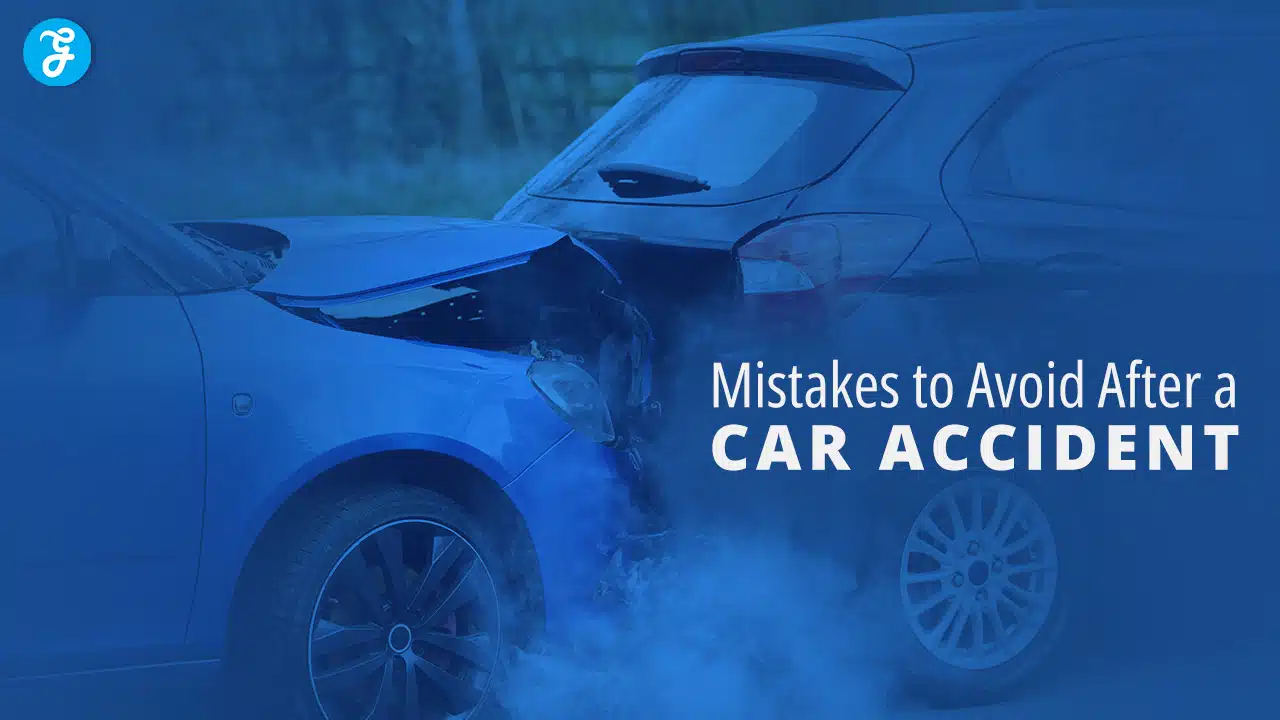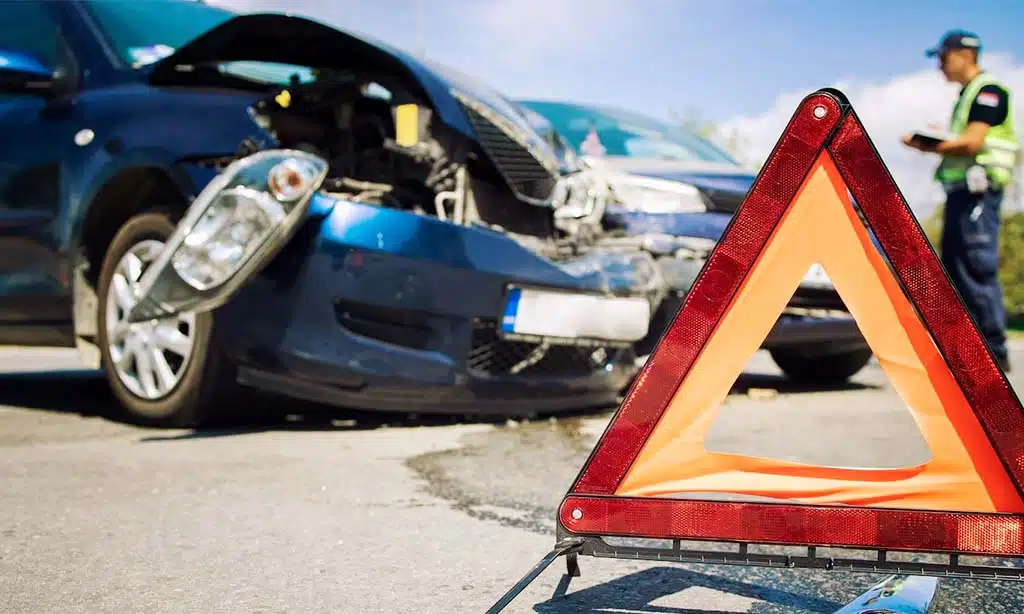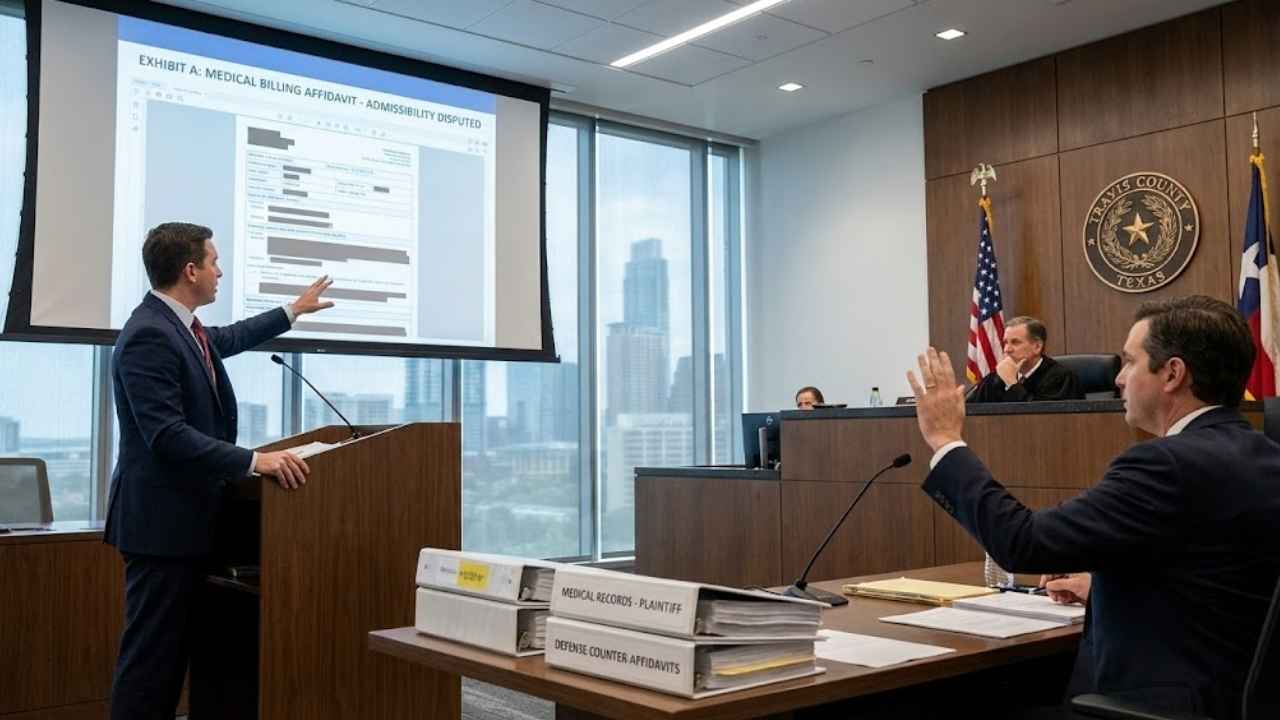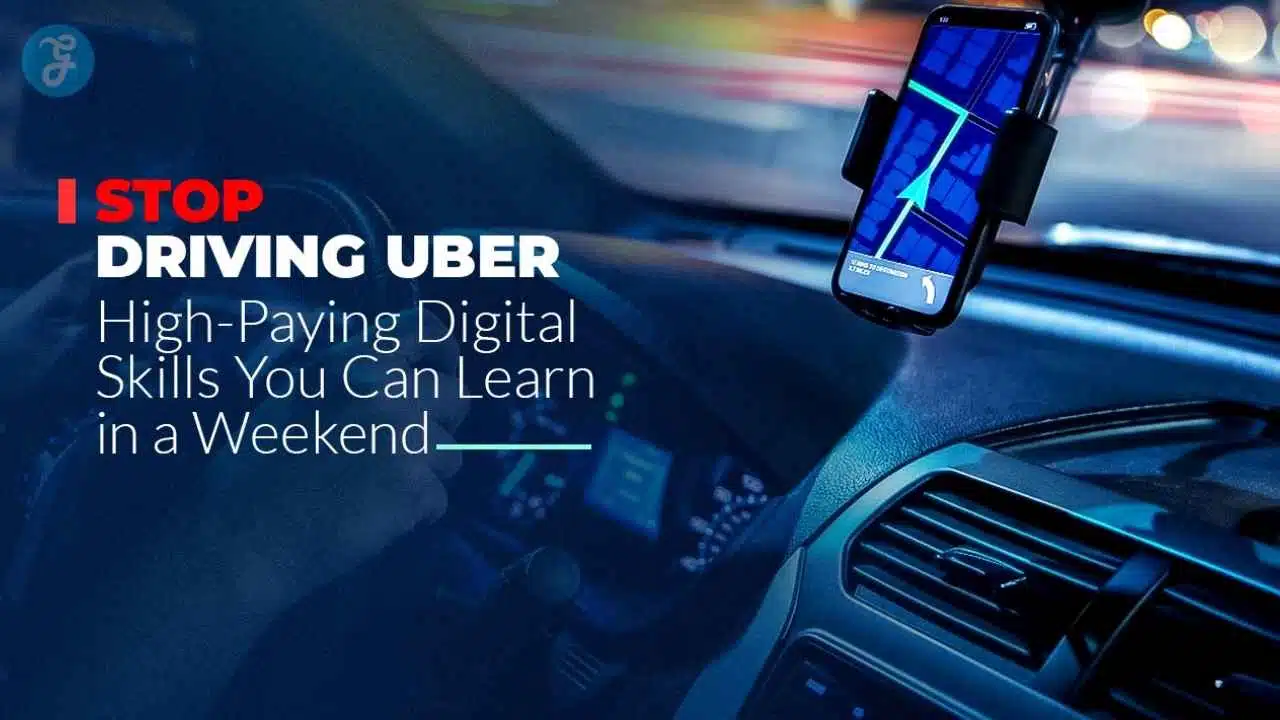Screeching tires, crunching metal—in an instant, your day turns upside down. But what you do next can make or break your future. Buckle up as we navigate the treacherous terrain of post-accident pitfalls.
These 15 mistakes to avoid after a car accident are vital and could save you thousands when the unexpected strikes.
The Top 15 Mistakes to Avoid After a Car Accident
Avoiding common mistakes after a car accident can save time, money, and stress. Immediate reactions are crucial and can impact your insurance claims and legal standing. Here are the top 15 mistakes to avoid after a car accident to ensure your safety and protect your rights.
1. Leaving the Scene of the Accident
In the chaos following a collision, your fight-or-flight response might urge you to flee the scene. However, this knee-jerk reaction can have severe legal consequences. In all 50 states, leaving the scene of an accident is a criminal offense, often referred to as a “hit and run.”
The severity of the punishment varies depending on the accident’s outcome:
- For accidents resulting only in property damage, penalties can include fines up to $5,000 and up to 1 year in jail.
- If the accident caused injuries, penalties escalate to potential felony charges, with fines up to $20,000 and up to 15 years in prison.
- In fatal accidents, hit and run drivers can face charges similar to vehicular manslaughter.
Things to follow:
- Stay at the scene until law enforcement arrives, even for minor accidents.
- If it’s safe to do so, move your vehicle to the side of the road to avoid obstructing traffic.
- Turn on your hazard lights and set up emergency flares or reflective triangles, if available.
- Check on all parties involved, including passengers in other vehicles.
- Exchange information with other involved parties, including names, contact details, insurance information, and vehicle details.
- Wait for police to complete their report and provide an accurate account of what happened.
- Request a copy of the police report or information on how to obtain it later.
2. Failing to Call the Police
Many people mistakenly believe that police involvement is unnecessary for minor accidents. However, a police report serves as a crucial, unbiased document that can significantly impact insurance claims and potential legal proceedings.
Benefits of calling the police:
- Official documentation of the accident details
- Objective third-party account of the scene and statements
- Proper recording of any traffic violations or citations
- Assistance in managing the accident scene and ensuring safety
In some jurisdictions, calling the police is mandatory if:
- There are injuries or fatalities
- Property damage exceeds a certain amount (usually between $500 and $2,500, depending on the state)
- The accident is blocking traffic
Things to follow:
- Call 911 or the local police non-emergency number immediately after ensuring everyone’s safety.
- Provide accurate location details, including nearby landmarks if you’re unsure of the exact address.
- Follow the dispatcher’s instructions and remain on the line if asked to do so.
- When officers arrive, provide a factual account of what happened without speculating or admitting fault.
- Ask the responding officer how to obtain a copy of the police report.
- Note the officer’s name and badge number for future reference.
3. Not Seeking Medical Attention
The adrenaline rush following an accident can mask pain and symptoms, leading many people to decline medical attention at the scene. However, some injuries, particularly those involving soft tissue or internal organs, may not manifest symptoms immediately.
Delayed symptoms to watch for:
- Headaches (potential sign of concussion or whiplash)
- Neck or shoulder pain (often associated with whiplash)
- Back pain (could indicate spinal injuries)
- Abdominal pain (possible internal bleeding)
- Numbness or tingling (potential nerve damage)
- Changes in personality or physical function (signs of traumatic brain injury)
Things to follow:
- Accept medical evaluation at the scene if emergency services are present.
- If you decline on-scene treatment, see a doctor as soon as possible after the accident, ideally within 72 hours.
- Be thorough in describing any symptoms, no matter how minor they seem.
- Follow all doctor’s orders and attend follow-up appointments as recommended.
- Keep detailed records of all medical treatments, prescriptions, and expenses.
- Document how your injuries impact your daily life and work capabilities.
4. Admitting Fault or Apologizing
In the aftermath of an accident, it’s natural to feel upset and want to express sympathy. However, saying “I’m sorry” or admitting fault can be interpreted as an admission of legal liability, even if that wasn’t your intent.
Potential consequences of admitting fault:
- Your statement can be used against you in insurance claims
- It may be cited in legal proceedings as an admission of guilt
- Your insurance premiums could increase
- You might be held financially responsible for damages and injuries
Things to follow:
- Stick to exchanging necessary information with other parties, such as contact and insurance details.
- When speaking to others involved in the accident, police, or insurance representatives, state only the facts of what happened without interpreting or assigning blame.
- Use neutral language to express concern, such as “Are you okay?” instead of “I’m sorry.”
- If pressed to make a statement about fault, politely say that you’d prefer to wait for the insurance companies to investigate.
- Remember that determining fault in an accident often involves complex factors that may not be immediately apparent.
5. Failing to Document the Accident Scene
In the digital age, your smartphone can be your most valuable tool for preserving evidence after an accident. Proper documentation can make the difference between a successful claim and a disputed case.
Essential elements to document:
- Damage to all vehicles involved
- The overall accident scene, including road conditions and traffic signs
- Weather conditions
- Visible injuries
- License plates of all vehicles involved
- Insurance information and driver’s licenses of other parties
Things to follow:
- Take numerous photos from multiple angles, ensuring you capture both close-up details and wide shots of the scene.
- Use your phone’s video feature to pan across the accident scene, narrating what you see.
- Write down or voice record your recollection of the events leading up to, during, and after the accident while it’s fresh in your memory.
- Collect contact information from witnesses, including names, phone numbers, and email addresses.
- If possible, sketch a diagram of the accident, showing the position of vehicles, traffic signals, and other relevant factors.
6. Not Reporting the Accident to Your Insurance Company
Many people hesitate to report minor accidents to their insurance company, fearing premium increases. However, failing to report an accident can lead to serious consequences, including claim denials if the other party files a claim later.
Reasons to report all accidents:
- Many insurance policies require prompt reporting of all incidents
- Early reporting allows for timely investigation and evidence collection
- It protects you if the other party’s account of the accident changes
- Some injuries or damages may not be immediately apparent
Things to follow:
- Contact your insurance company as soon as possible after the accident, ideally within 24 hours.
- Provide an honest and factual account of what happened, sticking to the known details.
- Ask about your policy’s specific requirements for claim filing and follow them carefully.
- Inquire about potential impacts on your premium, but don’t let this deter you from reporting.
- Keep a record of your conversation, including the date, time, and name of the representative you spoke with.
7. Giving Recorded Statements Without Legal Advice
Insurance adjusters often request recorded statements shortly after an accident. While this may seem routine, these statements can be used to minimize or deny your claim.
Risks of giving recorded statements without legal counsel:
- You might accidentally admit fault or downplay injuries
- Statements made before the full extent of injuries is known can be used against you later
- Insurance adjusters may ask leading questions designed to limit liability
- You might agree to a quick settlement before understanding the full scope of damages
Things to follow:
- Politely decline to give a recorded statement until you’ve had time to consult with a lawyer.
- If you must provide information to your own insurance company, stick to basic facts about the accident.
- Avoid speculating about fault or the extent of injuries and damages.
- Consider consulting with a car accident attorney before speaking with any insurance representatives, especially those from the other party’s insurance company.
- If you decide to give a statement, prepare in advance by reviewing the facts and consulting with legal counsel if possible.
8. Accepting a Quick Settlement Offer
Insurance companies often try to settle claims quickly, sometimes offering a settlement within days of the accident. While a fast resolution might seem appealing, accepting an early offer can leave you undercompensated, especially if you have ongoing medical issues.
Dangers of quick settlements:
- You may not yet know the full extent of your injuries or recovery time
- Long-term effects of injuries might not be apparent
- You could be left responsible for future medical expenses related to the accident
- Lost wages and future earning capacity might not be adequately accounted for
Things to follow:
- Delay accepting any settlement offer until you have a clear understanding of your injuries and prognosis.
- Seek a thorough medical evaluation and follow all treatment recommendations.
- Keep detailed records of all accident-related expenses, including medical bills, lost wages, and property damage.
- Consider consulting with a personal injury attorney to evaluate whether the offer is fair and comprehensive.
- If negotiating on your own, be prepared to counter with a well-documented claim that includes all your damages.
9. Neglecting to Keep Detailed Records
Proper documentation is the backbone of any successful insurance claim or legal case. Without detailed records, you may struggle to prove the full extent of your losses.
Essential records to maintain:
- Medical records and bills
- Receipts for medications and medical devices
- Documentation of lost wages and time off work
- Repair estimates and bills for property damage
- Correspondence with insurance companies and healthcare providers
- A daily journal documenting pain levels and how injuries affect daily life
Things to follow:
- Create a dedicated file or digital folder for all accident-related documents.
- Keep a detailed log of all accident-related expenses, no matter how small.
- Document time missed from work, including partial days and time spent at medical appointments.
- Save all communication related to the accident, including emails, letters, and notes from phone calls.
- Take photos of visible injuries as they heal and document any physical therapy or rehabilitation.
10. Oversharing on Social Media
In our connected world, the temptation to share experiences on social media is strong. However, posts about your accident or recovery can be used by insurance companies and defense attorneys to challenge your claims.
How social media can harm your case:
- Photos showing physical activities could be used to dispute injury claims
- Posts about emotional state might be used to argue against claims of emotional distress
- Check-ins at locations could be used to question the severity of your injuries
- Comments from friends might inadvertently reveal damaging information
Things to follow:
- Avoid discussing the accident or your injuries on any social media platforms.
- Set all your social media accounts to private, but be aware that even private posts can potentially be subpoenaed.
- Ask friends and family not to post about your accident or injuries.
- Be cautious about accepting new friend requests, as insurance companies sometimes use fake profiles to gain access to your information.
- Consider taking a break from social media altogether until your case is resolved.
11. Mishandling Evidence
Physical evidence from the accident can be crucial in proving your case, especially if liability is disputed. Mishandling or losing this evidence can significantly weaken your position.
Types of important physical evidence:
- Damaged personal property from the accident
- Torn or bloodstained clothing
- Vehicle parts found at the scene
- Traffic or security camera footage
- Data from vehicle “black boxes” or dashcams
Things to follow:
- Preserve any physical items from the accident in their original condition.
- Store damaged items in a safe, dry place where they won’t be disturbed.
- Take multiple photos of any physical evidence, including close-ups and shots showing size reference.
- If possible, obtain copies of any available video footage from the accident scene.
- For digital evidence, make multiple backups and store them in different locations.
- Consult with an attorney before repairing or replacing damaged items, as they may need to be inspected.
12. Failing to Follow Up on Your Claim
Once you’ve filed a claim, it’s easy to assume the insurance company will handle everything. However, lack of follow-up can lead to delays, miscommunications, or even claim denials.
Risks of not following up:
- Important deadlines might be missed
- Required documentation could be overlooked
- Your claim might be deprioritized or lost in the system
- You might miss opportunities to provide additional supporting information
Things to follow:
- Keep a log of all communications related to your claim, including dates, times, and names of representatives.
- Follow up regularly (every 1-2 weeks) on the status of your claim.
- Ask for specific next steps and timelines during each interaction.
- Promptly respond to any requests for additional information or documentation.
- If you’re not getting satisfactory responses, escalate to a supervisor or consider seeking legal representation.
13. Ignoring the Statute of Limitations
Every state has a specific time limit, known as the statute of limitations, for filing a lawsuit after a car accident. Missing this deadline can permanently bar you from seeking compensation through the court system.
Statute of limitations facts:
- Time limits vary by state, typically ranging from 1 to 6 years for personal injury claims
- Property damage claims may have different time limits than personal injury claims
- The clock usually starts ticking on the date of the accident
- Certain circumstances can “toll” (pause) the statute of limitations, such as cases involving minors
Things to follow:
- Research and note the statute of limitations for car accident claims in your state.
- Be aware that different types of claims (e.g., personal injury vs. property damage) may have different time limits.
- Consider consulting with an attorney well before the deadline approaches to ensure all necessary actions are taken.
- If approaching the deadline, file any necessary legal action to preserve your rights, even if you’re still negotiating with the insurance company.
14. Not Understanding Your Insurance Policy
Many people don’t fully grasp the details of their auto insurance coverage until after an accident occurs. This lack of understanding can lead to unexpected out-of-pocket expenses and missed opportunities for compensation.
Key policy elements to understand:
- Liability coverage limits
- Collision and comprehensive coverage details
- Personal injury protection (PIP) or medical payments coverage
- Uninsured/underinsured motorist coverage
- Deductible amounts for different types of claims
- Rental car coverage provisions
Things to follow:
- Review your insurance policy annually and after any life changes (e.g., moving, buying a new car).
- Schedule a meeting with your insurance agent to go over your coverage in detail.
- Ask about any confusing terms or clauses in your policy.
- Consider whether you need additional coverage for better protection, such as increasing liability limits or adding comprehensive coverage.
- Understand how different types of claims might affect your future premiums.
15. Handling Complex Cases Without Legal Representation
While minor fender-benders might be handled without an attorney, more complex cases often benefit from professional legal guidance. Attempting to navigate complicated legal and insurance issues alone can result in lower settlements and missed opportunities for compensation.
Scenarios that often require legal expertise:
- Accidents resulting in severe injuries or fatalities
- Cases involving multiple parties or disputed liability
- Accidents with commercial vehicles or government entities
- Situations where the insurance company is acting in bad faith
- Cases involving uninsured or underinsured motorists
Things to follow:
- Consider consulting with a car accident attorney, especially if your case involves severe injuries, disputed liability, or complex legal issues.
- Take advantage of free initial consultations offered by many law firms to assess whether you need legal representation.
- Understand the potential benefits of having legal representation in negotiations and potential litigation:
- Attorneys can accurately value your claim, including future medical expenses and lost earnings.
- They have experience negotiating with insurance companies and can often secure higher settlements.
- Lawyers can navigate complex legal procedures and deadlines, ensuring your rights are protected.
- If your case goes to trial, an experienced attorney can present your case effectively in court.
- Be aware that most personal injury attorneys work on a contingency fee basis, meaning they only get paid if you win your case.
- Even if you decide not to hire an attorney, consider having a lawyer review any settlement offers before accepting them.
Comparative Analysis of Global Accident Statistics (2021-2023)
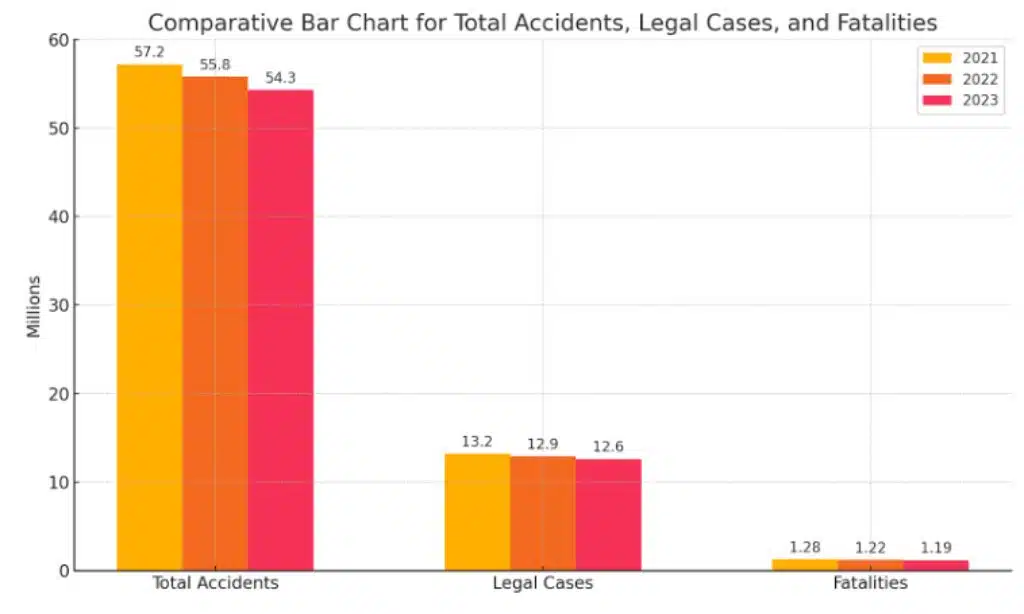
The next year, in 2022, a deadly train collision in Croatia underscored broader transportation safety concerns and the need for improved infrastructure and technology. Again, in 2023, a tragic bus crash in Kenya revealed the dire state of road conditions and vehicle maintenance in certain regions causing a number of fatalities.
Distracted driving and speeding remained the leading causes of accidents globally, while economic losses peaked at $2 trillion in 2022, emphasizing the financial burden. Despite a decline in total accidents and fatalities in 2023, the persistence of alcohol-related incidents indicates the need for more robust safety measures.
Takeaway
Remember, the road to recovery after an accident is paved with potential missteps. Stay alert, document everything, and don’t go it alone. Your actions in the crucial moments after a crash can shape your future.
Drive safely, but if trouble hits, you’re now armed with the knowledge of how to avoid mistakes after a car accident and got a legal advice to protect your rights and secure the compensation you deserve.


